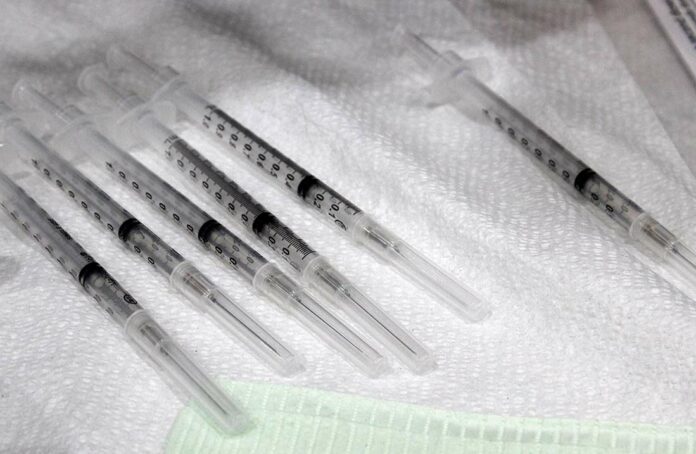The California Department of Public Health is urging Californians to get immunized against a triple-threat of viruses that are expected to surge in the coming months.
Rates of Covid-19, influenza, and respiratory syncytial virus, or RSV, are expected to spike in the late fall and winter months as more people gather indoors, and as fewer people are getting vaccinated against Covid-19.
But a shortage of RSV antibody doses this season has federal and state health officials shifting their guidance to include more vaccinations for pregnant women during certain periods of their pregnancies.
Vaccination rates for Covid-19 are much lower compared to the past two years. The vaccines were previously free for patients, with the cost paid by the federal government, but are now on the commercial market. Those without health insurance can still access free vaccines through a state program called My Turn, which can be accessed at myturn.ca.gov.
Dr. Tomas Aragon, the state’s public health officer, said during a virtual press conference Oct. 26 that vaccination rates have been lower among Californians with lower incomes, and among certain racial and ethnic groups.
About 4.6% of the state’s population is up to date on the Covid-19 vaccine, compared to 75% of the state that was fully vaccinated at the height of the pandemic. White Californians are currently vaccinated at a rate of 6.7%, while Black Californians have a rate of 2.7% and Latinos have a 1.5% rate.
Covid-19 infections have come down in the state after a brief summer surge. Statewide, there were 610,381 people newly hospitalized with coronavirus between Aug. 20 and Oct. 14, an average of 248 per day. The state recorded over 104,000 deaths from Covid-19 from Aug. 1 to Sept. 25, an average of 19 per day, according to the state’s Covid-19 tracker.
Aragon recommended anyone older than 6 months to get a Covid and a flu shot.
The current Covid-19 vaccinations only require one dose, rather than needing a booster, with the exception of the Novavax vaccine, which received emergency-use authorization from the U.S. Food and Drug Administration this month.
There is revised guidance for the flu vaccine for people with egg allergies who were previously cautioned against the shot. Now, people with egg allergies are encouraged to get the shot like everyone else, unless they have had an adverse reaction in the past, Aragon said.
More than 4,600 Californians died from the flu in 2021, the last full year the federal Centers for Disease Control and Prevention has published data for.
“October is a perfect time to get vaccinated against influenza so you have enough time to build up immunity, so as influenza picks up, you’ll be protected,” Aragon said.
Protection against RSV can come in the form of a vaccine for older adults and pregnant women, and immunization through antibodies for infants and children. There is currently a shortage of a newly developed antibody treatment from Sanofi and AstraZeneca, Beyfortus (nirsevimab-alip), across the country, prompting the CDC to issue a health advisory Oct. 23 recommending rationing the supply.
The state’s public health department is encouraging women who are between 32-36 weeks pregnant to get the vaccine as a way to transmit immunity to the fetus that lasts about six months after birth.
Newborns and toddlers between birth and 19 months old are at the highest risk of severe RSV, along with adults older than 65.
Aragon recommended wearing masks, washing your hands, and staying home when sick as prevention methods.
More information on the differences and availability of vaccines can be found at vaccines.org.
Copyright © 2023 Bay City News, Inc.








